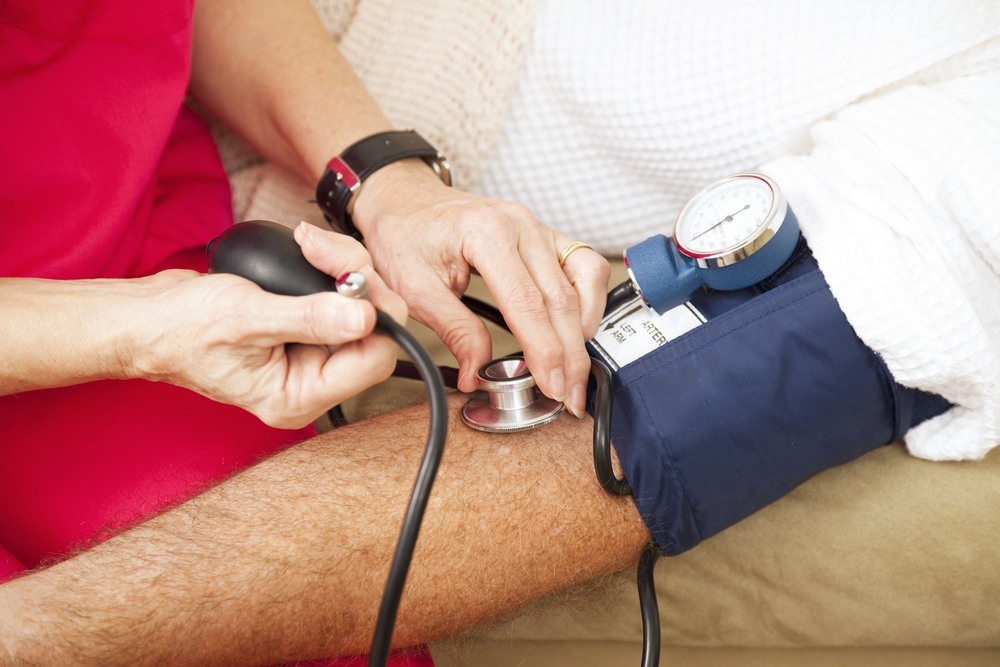Guidelines have always indicated a systolic blood pressure level below 120 is considered healthy.
A systolic blood pressure level below that also means a lower risk of heart disease and other health problems.
But treatment would often only occur if systolic levels rose above 140, the level officially considered as having high blood pressure. But recent study results leave doctors questioning the old standards.
The findings show reduced systolic blood pressure reduces the risk for heart attacks, stroke and even death for those with high blood pressure.
“This is notable because there (are) a lot of people out there with blood pressure in the 130s that we might previously have left alone, but if the results of this trial (are) as we think they are, it might be reason to try to get them to 120,” said Dr. John D. Bisognano, professor of medicine at the University of Rochester Medical Center and president-elect of the American Society of Hypertension.
Final results from the study will be available in the coming months, but doctors are already changing their recommendations and even their practices.
“It has changed in my practice. Like if I have someone in the low 140s, I no longer say that’s sort of close. … I try to push them down into the mid-130s if they are nondiabetic,” Bisognano said.
Systolic blood pressure was the focus of the study because it serves as a better indicator for risks associated with heart attacks, stroke and other cardiovascular disease.
With new standards expected soon, more people are in need of blood pressure help. So what can you do if your systolic blood pressure is above the 120 mark?
Lose Weight
Losing weight can reduce blood pressure significantly. Research has shown an individual can drop their systolic blood pressure by 4.5 points if they lose about 9 pounds. Maintaining that weight loss could even be better, with one study suggesting individuals maintaining 7 pounds of weight loss can reduce hypertension by 11 points.
While it’s not entirely clear whether diet changes, circulation changes or other factors reduce blood pressure, it does help to lose weight.
Exercise
Exercise is and always will be one of the best ways for anyone to lower hypertension. It also improves the flexibility of your arteries and improves dilation for improved blood flow.
Both the American College of Cardiology and the American Heart Association recommend at least 2 1/2 hours of exercise a week of medium intensity exercise.
Reduce Your Salt
Reducing the amount of salt you consume is one of the best things you can do for your heart. The American Heart Association recommends about a third of what most people get a day when it comes to sodium. Aim for consuming 3 to 4 grams of sodium, instead of the typical 9 to 12 grams most people get. Studies have shown dropping from 8 grams to 4 grams a day can reduce systolic blood pressure almost 7 points.
Eat Fruits and Vegetables
If you’re in need of a diet that’s designed to help reduce your blood pressure, the Dietary Approaches to Stop Hypertension, or DASH diet, may be what you need. Developed by the National Institutes of Health, the DASH diet is a diet high in fiber from fruits and vegetables.
Eat Chocolate and Limit Your Alcohol Intake
We know two popular ways to enjoy yourself is through chocolate and alcohol. Fortunately, chocolate can help your blood pressure, but drinking isn’t going to. The antioxidants in chocolate help dilate the blood vessels.
Studies show reducing alcohol to a single drink a day for women and less than two for men can cut systolic blood pressure by about 4 points.
Reduce Your Stress
Whether it’s meditation or something else, take the time to relax and lower your stress levels. Meditation has the most studies behind it with some analysis reporting a drop of 5 more points is possible with meditation when compared to other forms of stress relief.
Get Your L-arginine and L-citrulline
Finally, l-arginine and l-citrulline are two key amino acids when it comes to dilating your blood vessels to improve hypertension. The combination of these amino acids offer significant benefits when used just once a day and can lead to reduced blood pressure without the side effects of medication.
Learn more about L-arginine Plus and how it can help support your blood pressure levels.
If your blood pressure is above 120, or you haven’t had it checked recently, it’s important to understand your levels and take action to keep it as healthy as possible.
Resources:
http://www.cnn.com/2015/09/18/health/

